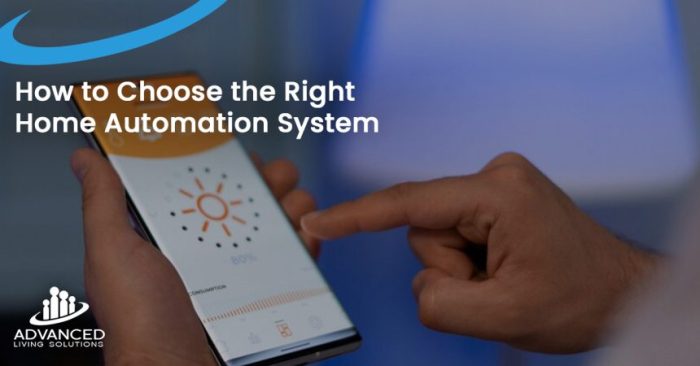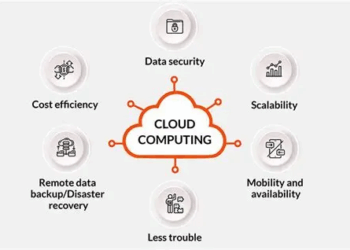
Delving into the realm of home automation systems, the importance of selecting the proper insurance coverage cannot be overstated. This guide will navigate through the intricate details of safeguarding your smart home with the right insurance policies.
As we explore the risks, types of coverage, factors to consider, and best practices, you’ll gain valuable insights into ensuring the protection of your automated abode.
Understanding Home Automation Systems
Home automation systems refer to a network of devices that allow for the control and automation of various aspects of a home, such as lighting, heating, ventilation, air conditioning, security, and entertainment systems.
Key Components of a Typical Home Automation System
- Smart Hub: Acts as the central control unit for all connected devices.
- Sensors: Detect changes in the environment, such as motion, temperature, or light.
- Actuators: Devices that perform a specific action, such as turning on/off lights or locking doors.
- Smart Devices: Includes smart thermostats, smart lighting, smart security cameras, and smart appliances.
- Mobile App or Control Panel: Allows users to monitor and control the system remotely.
Benefits of Integrating Insurance with Home Automation Systems
Integrating insurance with home automation systems can provide numerous benefits for homeowners:
- Enhanced Security: Home automation systems can help prevent burglaries and provide evidence in case of theft, potentially lowering insurance premiums.
- Remote Monitoring: Insurance companies may offer discounts for homeowners who have remote monitoring capabilities through their automation systems.
- Preventative Maintenance: Home automation systems can detect issues like water leaks or electrical problems early, reducing the risk of costly damage and insurance claims.
- Energy Efficiency: Automation systems can help optimize energy usage, leading to potential savings on utility bills and insurance discounts for eco-friendly practices.
Risks Associated with Home Automation Systems
Home automation systems offer convenience and efficiency, but they also come with certain risks that homeowners should be aware of. These risks can range from privacy concerns to potential security vulnerabilities that could leave your home exposed to cyber threats.
Security Vulnerabilities
One of the primary risks associated with home automation systems is the potential for security vulnerabilities. These vulnerabilities can arise from a variety of factors, such as outdated software, weak passwords, or insecure network connections. Hackers can exploit these weaknesses to gain access to your home automation system, putting your personal information and property at risk.
- Weak Passwords: Using simple or easily guessable passwords can make it easier for hackers to infiltrate your home automation system.
- Outdated Software: Failure to update your system’s software can leave it vulnerable to known security threats that have not been patched.
- Insecure Network Connections: If your home automation devices are connected to an unsecured network, hackers may be able to intercept the data being transmitted and gain unauthorized access.
Privacy Concerns
Another risk to consider with home automation systems is the potential invasion of privacy. Some devices may collect and store sensitive data about your daily routines, habits, and even audio or video recordings. If this information falls into the wrong hands, it could be used for malicious purposes or exploitation.
- Data Collection: Home automation systems may collect data about your behaviors and preferences, which could be exploited if the system is breached.
- Audio/Video Recording: Devices with audio or video recording capabilities could inadvertently capture private moments if not properly secured.
- Third-Party Apps: Integrating third-party apps with your home automation system may expose your data to additional privacy risks if these apps are not secure.
Importance of Insurance Coverage
Given the potential risks associated with home automation systems, it is crucial for homeowners to have adequate insurance coverage to mitigate these risks. Home insurance policies may offer coverage for cyber attacks, data breaches, or theft resulting from security vulnerabilities in your home automation system.
By having the right insurance in place, homeowners can protect themselves financially in the event of a cyber incident related to their home automation system.
Types of Insurance Coverage for Home Automation Systems

Insurance coverage for home automation systems can vary depending on the type of policy you have. It’s important to understand the different options available to ensure your smart home devices are adequately protected.
Homeowner’s Insurance Coverage
Many homeowner’s insurance policies may provide coverage for damages related to home automation systems. However, the coverage may be limited, and it’s essential to review your policy to understand what is included.
Specialized Insurance Options for Smart Homes
For more comprehensive coverage of your smart home devices, you may consider specialized insurance options tailored specifically for smart homes. These policies are designed to provide broader coverage for the unique risks associated with home automation systems.
Factors to Consider When Choosing Insurance for Home Automation Systems
When it comes to protecting your smart home, choosing the right insurance coverage is crucial. There are several key factors that homeowners should consider to ensure their home automation systems are adequately protected.
Value of Home Automation Devices
The value of your home automation devices can greatly impact your insurance coverage. Make sure to accurately assess the total value of all your smart devices, including smart locks, security cameras, thermostats, and more. This will help you determine the appropriate coverage needed to replace these devices in case of damage or theft.
- Take inventory of all your home automation devices and their respective values.
- Consider the cost of replacing these devices with similar models in today’s market.
- Factor in any customization or upgrades made to the devices when calculating their value.
Ensuring Adequate Coverage
To ensure adequate coverage for your home automation systems, follow these tips:
- Review your current homeowner’s insurance policy to see if it includes coverage for smart home devices. If not, consider adding a rider or endorsement to your policy.
- Understand the coverage limits and exclusions of your insurance policy to determine if additional coverage is needed for your home automation systems.
- Consider purchasing a separate cyber insurance policy to protect against cyber threats and data breaches that may affect your smart home devices.
- Regularly update your inventory of home automation devices and their values to reflect any new additions or changes in the system.
- Consult with your insurance provider to discuss any specific coverage options or discounts available for home automation systems.
Best Practices for Insuring Home Automation Systems
When it comes to insuring your home automation systems, there are several best practices that homeowners should follow to ensure they are adequately protected. Regular updates, maintenance, and proper documentation of smart devices are crucial for a smooth insurance process in case of any unforeseen events.
Regular Updates and Maintenance
Regular updates and maintenance of your home automation systems are essential not only for their proper functioning but also for insurance purposes. Keeping your systems up to date with the latest software and security patches can help prevent potential issues and reduce the risk of cyber-attacks or system malfunctions.
Proper Documentation of Smart Devices
Documenting all your smart devices and systems is key to streamlining the insurance claims process. Make a detailed inventory of all your devices, including their make, model, purchase date, and any warranties or service contracts. Take photos or videos of your devices and keep all receipts and documentation in a safe place, such as a digital cloud storage or a physical folder.
Ending Remarks

In conclusion, securing the appropriate insurance for your home automation systems is a crucial step towards safeguarding your technological haven. By understanding the risks, coverage options, and best practices, you can embark on this journey with confidence and peace of mind.
User Queries
Is homeowner’s insurance enough to cover damages to my home automation systems?
Homeowner’s insurance may not always provide sufficient coverage for damages related to home automation systems. It’s recommended to explore specialized insurance options tailored for smart homes.
How can I ensure adequate coverage for my home automation devices?
To ensure adequate coverage, consider factors such as the value of your devices and systems, and choose insurance policies that align with your specific needs and risks.
Why is regular maintenance important for insuring home automation systems?
Regular updates and maintenance are crucial for insurance purposes as they can help prevent potential risks and ensure that your devices are in optimal working condition.













